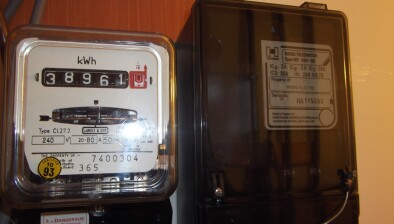New report highlights key failings in fuel poverty action across the UK
 Huge variations and changes to relevant national and UK wide affordable warmth policies has inevitably hindered progress to eradicate fuel poverty, according to a new report.
Huge variations and changes to relevant national and UK wide affordable warmth policies has inevitably hindered progress to eradicate fuel poverty, according to a new report.
The UK Fuel Poverty Monitor, produced annually by National Energy Action (NEA) and Energy Action Scotland (EAS), was published following the recent elections in Northern Ireland, Scotland and Wales to highlight why progress to eradicate fuel poverty across the UK has slowed despite statutory commitments and current policies.
The report calls for a greater need to collaborate to evaluate progress across the nations and also for the wider impact of decisions made in Westminster to be addressed by building in a new mechanism to evaluate impacts of policy changes across the UK.
Other recommendations included the establishment of a formal cross-nation working group and that investment in energy efficiency is still regarded a top priority across all nations.
In Scotland alone, the Scottish Government is required to eradicate fuel poverty as far as is reasonably practicable by November 2016. However, currently, 845,000 households in Scotland still live in fuel poverty, just under 35 per cent of the population.
The report called for a detailed roadmap to be introduced with targets and milestones for eradicating fuel poverty and also for the adoption of the NICE guidance for cold homes and develop better links with health. It also urged the Scottish Government to commit to having the consultation on the energy efficiency regulations for private sector homes once the new government is formed.
The report’s key recommendations include:
Peter Smith, head of policy and research at NEA, said: “Despite our report warning for many years that a pan UK-wide approach to eradicating fuel poverty is a very distant prospect, in the last five years alone there are now over 500,000 more fuel poor households living in cold homes. We hope the report will help all UK nations to now get the job done and end the unnecessary cost and suffering caused by fuel poverty once and for all.”
Norman Kerr, director of Energy Action Scotland, added: “For over five years EAS has called on the Scottish Government to commit to a detailed route-map with targets and milestones for eradicating fuel poverty. The new Scottish Government must now act on this key recommendation. The report also calls on the new Government to press on with the introduction of ambitious energy efficiency regulations for private sector homes.”
Pat Austin, director of NEA Northern Ireland, said: “Despite recent drops in wholesale energy prices further actions are needed to address NI’s dependency on home heating oil. Policy makers in NI also must ensure current and future schemes are effectively targeted at those that need the most support to reduce their heating costs.”
Carole Morgan Jones, director of NEA Cymru, added: “Whilst it is clear from the report that tackling fuel poverty needs a more joined up approach between the devolved administrations and UK Government, the newly elected Welsh Government needs to adopt a fresh approach within its devolved areas of responsibility. The Fuel Poverty Coalition Cymru’s Manifesto ‘Ending Wales’ Cold Homes Crisis’ sets out five clear priorities for action for the new government including an urgent need to address the needless deaths caused by cold homes.”







